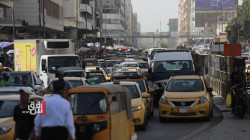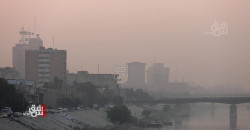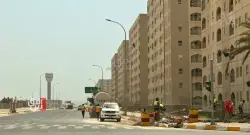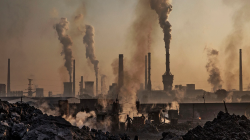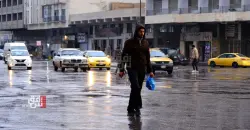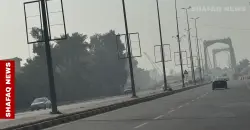Baghdad chokes under toxic smog as government scrambles for solutions
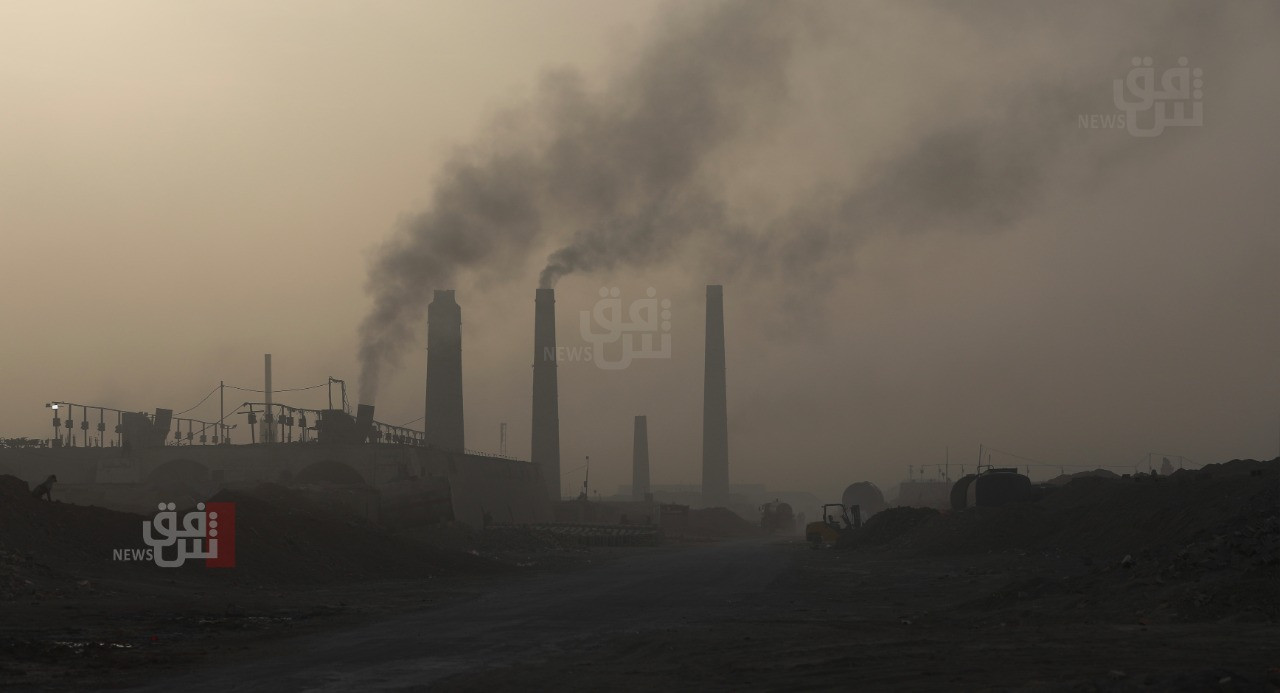
Shafaq News/ Residents of Baghdad are facing a worsening air pollution crisis, with foul odors and toxic emissions engulfing the city. As the capital struggles with soaring pollution levels, Iraqi Prime Minister Mohammed Shia Al-Sudani has formed a ministerial committee to urgently tackle the situation amid rising health concerns for children and the elderly.
I Choke Every Night
Dr. Abbas Al-Husseini, a pediatric consultant based in Baghdad, says, "I choke every night. I have developed bronchial allergies, and my voice has started to become hoarse due to inhaling the foul odors that have engulfed the capital in recent days. The smell is similar to that of rotten eggs, a result of carbon emissions from incomplete combustion, especially in the areas east of the canal, near unregulated dumping sites."
Speaking to Shafaq News, Al-Husseini points out that, "While countries around the world are investing in waste to convert it into resources such as electricity or energy, in Iraq, waste has become a source of toxic pollution. The improper disposal has led to the release of sulfur dioxide, a harmful gas that poses risks, especially to children and the elderly."
He explains that "Inhaling this toxic gas can cause respiratory infections and allergic bronchitis in children under five and the elderly. If left unchecked, it could lead to bloodstream infections as a result of lung inflammation. In severe cases, it can be carcinogenic, and if it reaches fatal concentrations, it may result in heart failure, circulatory collapse, suffocation, and respiratory failure."
Air Pollution: Two Main Categories.
Environmental researcher and field observer Samim Salam attributes the primary causes of air pollution to two factors. "The first is industrial facilities such as power plants, oxidized and non-oxidized asphalt factories, and the Dora refinery," Salam explains to Shafaq News.
He further clarifies that "Industrial activities in Baghdad's outskirts or nearby cities—many of which operate without environmental approvals—produce fumes and emissions of sulfur dioxide or hydrogen disulfide. These gases, being heavier than air, tend to accumulate between buildings."
As for the second cause of air pollution, Salam notes, "The burning of waste at unregulated landfills, such as those in Al-Rashid Camp and around the cities, called 'interim dumps,' before being moved to final dumping sites. Often, these wastes are unintentionally set on fire, sometimes by scavengers searching for copper or cardboard, leading to pollution."
Baghdad: The Most Polluted Arab City
In 2022, Baghdad ranked first in the Arab world and 13th globally in terms of air pollution. "However, no significant measures have been taken since then," according to environmental expert Jassim Al-Asadi.
Al-Asadi tells Shafaq News that "Air pollution in Baghdad is severe, and this is not the first time such contamination has been recorded. Previously, the city also experienced water and soil pollution caused by wastewater saturated with heavy metals and hospital waste dumped into the Tigris River, as well as desertification encroaching on the city."
He attributes the black cloud of sulfur dioxide hanging over Baghdad to "the Dora refinery located in central Baghdad, along with brick factories near residential areas, the burning of waste in various parts of the capital, and the enormous vehicle and generator emissions."
A well-informed source reveals that the Iraqi government is considering a proposal to relocate the Dora refinery outside the capital. The source informs Shafaq News that the Council of Ministers is studying a plan to dismantle and move the refinery from Baghdad, with a proposal to use the refinery's land for an investment project.
Additionally, the Green Iraq observatory, which specializes in environmental affairs, linked the frequent sulfur odor over Baghdad to the use of high-sulfur oil in power generation plants.
The observatory warned that Baghdad's air, particularly in recent days, has been loaded with hazardous materials threatening the health of children and the elderly. It noted that Baghdad has recorded, for the first time, an air pollution rate of 515%.
Environmental Ministry's Response
The Iraqi Ministry of Environment has announced an "urgent" session to discuss solutions for Baghdad’s air pollution crisis, chaired by the capital’s governor. In a statement, the ministry noted that the session included an in-depth discussion on the air pollution issue and ways to combat it.
In a move reflecting the government’s efforts in addressing the matter, Prime Minister Al-Sudani issued directives last Saturday to form a specialized ministerial committee to tackle the air pollution problem in Baghdad. The committee has been instructed to submit its recommendations within two days.
Speaking to Shafaq News, the spokesperson for the Ministry of Environment, Loui Al-Mukhtar, said, "A committee has been formed by the Prime Minister, and it is working diligently. Air samples have been collected, and actions are being taken to improve the situation. The report will be finalized today and sent to the Prime Minister, containing immediate measures as well as long-term solutions to address this issue."
The Ministry of Environment had earlier explained that the harmful gas emissions and unpleasant odors experienced by Baghdad residents, especially late at night, are due to the burning of black oil in power plants, asphalt and brick factories, and fires in unregulated landfills on the outskirts of the capital.
